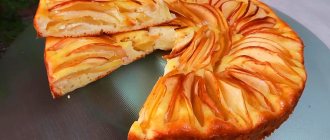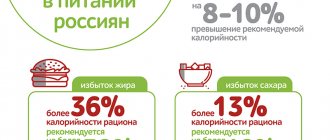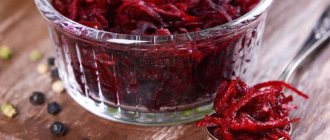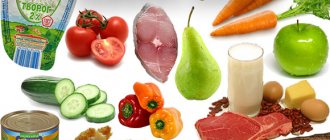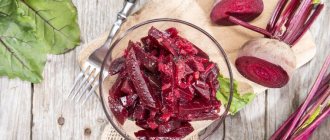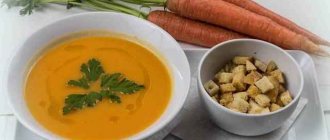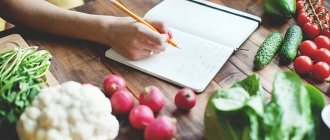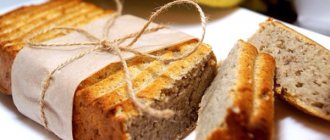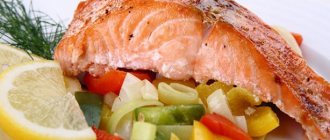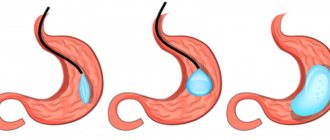6 steps to an anti-cancer diet
Speaking about the prevention and fight against cancer, it is worth mentioning a few simple rules, following which you can protect your health as much as possible.
Speaking about the prevention and fight against cancer, it is worth mentioning a few simple rules, following which you can protect your health as much as possible.
Below we'll talk about ways to improve your overall health and cleanse your body using the most effective cancer-fighting foods, drinks, herbs, and supplements.
Reduced toxin levels
The anti-cancer diet includes:
- reducing the amount of toxins consumed
- maintaining cleansing and detoxification processes in the body
- Eating healthy, nutrient-dense foods to support proper functioning of the entire body.
The first step is to reduce or eliminate the following foods to stop the production of toxins and reduce cell-damaging free radicals:
- commercial care and decorative cosmetics.
Anything you ingest or apply to your hair and skin, such as shampoos, makeup, or cleansing gels, can often contain carcinogens. Use environmentally friendly cosmetics (such as those tested by the US Environmental Working Group (EWG)).
- cleaning products for the home.
Of course, dirt always accumulates in rooms. You can reduce toxin levels by using more natural cleaning products (or even making your own) that don't contain chemicals.
- unnecessary medications.
All medications affect the liver. Heavy acetaminophen use is now increasingly becoming the leading cause of liver disease, surpassing even alcohol. Talk to your GP and you may be able to reduce the amount of medication you take.
- Plastic.
Ingredients found in plastic containers, packaging and cartons can release substances that are detrimental to the neuroendocrine system. This happens especially often when plastic is heated, so you should not heat food in containers, store hot food in them, or leave water bottles in the sun (for example, in a car).
Even if you eat a healthy diet, toxins can lurk at every turn. Intermittent fasting also promotes detoxification.
The organs responsible for removing toxins and waste from the body (skin, respiratory system, kidneys, liver, digestive system) are often “overloaded”. As a result, some of the toxins end up in the blood. By practicing body cleansing every few months, you can help your organs “catch” and remove toxins from cells and tissues. Various herbs, green drinks, easily digestible foods (such as vegetable juices) or lightly processed foods can help cleanse the intestines and liver.
Some experts recommend drinking alkaline water, which can be made by adding lime or lemon juice to regular water. To cleanse the body, you should also increase your consumption of raw foods and green juices.
While fiber plays an important role in digestion, elimination and detoxification, and is a source of probiotics, too much fiber can be detrimental to a weakened or overactive immune system. Drinking juices, steamed or raw foods, and reducing whole grains in the diet promote easy digestion and rapid absorption of nutrients.
Strict stage: therapeutic and dietary menu
Attention! The following information is for informational purposes only. If you want to use this diet to treat cancer, then you must consult your doctor!
We bring to your attention the strict diet of Wolf Laskin:
- Before the first meal, you need to eat porridge, which will be cooked, and ground rose hips in the amount of one tablespoon. It's very easy to prepare. We take whole rose hips and, using a coffee grinder, grind them to a flour-like state, then sift them through a sieve. Place a tablespoon of rosehip mixture in a cup and add cold boiled water to it in sufficient quantity to make a liquid porridge. Now you need to add 2/3 tablespoon of honey to this paste. We eat the resulting porridge slowly, being in a camphor-friendly place.
- Breakfast No. 1 – a portion of freshly prepared buckwheat porridge. Why take 100 grams of buckwheat, fill it with 400 ml of water and cook for a quarter of an hour. Add 10 ml of cold extra virgin olive oil to the finished buckwheat.
- Breakfast No. 2 – raisins in any quantity and a cup of green tea.
- Lunch - first a mixture of rosehip flour and honey, then buckwheat.
- Repeat buckwheat porridge.
During a strict diet, freshly squeezed juice must be present in the daily diet, in the amount of one glass.
Let's say you can drink pineapple juice on the first and fourth days of the week. The second and fifth days are dedicated to blueberry juice. On the third and sixth days of the week, we give our preference to citrus juice, but on the seventh, we prepare a specific cocktail from coconut milk and pineapple juice, mixing them in equal proportions.
You need to drink at least 3.5 liters of liquid per day, which may include teas, compotes and juices.
Spend more time walking outdoors. After 47 days, the diet can be slightly relaxed. The menu can include bran (4.5 grams), prunes (no more than six pieces), apricots (no more than six pieces), 2 figs, peanuts, almonds and Brazil nuts (no more than four cups of each).
Cooking food at a lower temperature, without frying
- Stop frying! Significantly reduce the amount of fast food, French fries, chips, cakes, cereals and cookies you consume.
- It is almost impossible to completely eliminate acrylamides, which are found in fried foods, from your diet. However, a balanced diet with a minimum of processed and ultra-processed foods high in starch can significantly reduce acrylamide levels in the body.
- Acrylamides are formed during frying or baking, but not during boiling or stewing. Higher temperatures and longer cooking times can only increase their quantity.
- Do not store potatoes in the refrigerator. This can lead to the production of acrylamide. If you plan to cook the potatoes at a high temperature, first immerse the tubers in water for a couple of hours. This will reduce the amount of acrylamides by almost 50%. Their levels will drop by 20%, even if you simply wash the potatoes before cooking.
Avoid eating bread. However, if you do plan to eat a sandwich and toast, opt for sprouted grain bread, such as Ezekiel bread. In addition, during any anti-cancer diet, you should not eat overcooked bread. The Food Standards Agency in the UK says food should be golden or lighter in color after any form of frying or baking.
Essiak tea helps fight cancer. Or not?
Laskin's expanded therapeutic and dietary menu
The anti-cancer diet below is for 7 days.
Every day for dinner we eat stewed vegetables with nuts, raisins and drink a cup of green tea.
Day #1
- On an empty stomach - honey-rosehip porridge.
- Breakfast No. 1 – buckwheat with cold-pressed olive oil, a slice of whole grain bread, raisins, a cup of green tea.
- Breakfast No. 2 – 200 grams of blueberries.
- Snack – honey-rosehip porridge.
- Lunch – legume soup, steamed fish and vegetable salad.
Day #2
- On an empty stomach - honey-rosehip porridge.
- Breakfast No. 1 – oatmeal with cold-pressed olive oil, a slice of whole grain bread, raisins, a cup of green tea.
- Breakfast No. 2 – a small bunch of grapes with seeds, which you also need to eat.
- Snack – honey-rosehip porridge.
- Lunch – lentil soup, boiled chicken, vegetable salad.
Day #3
- On an empty stomach - honey-rosehip porridge.
- Breakfast No. 1 – buckwheat with cold-pressed olive oil, a slice of whole grain bread, raisins, a cup of green tea.
- Breakfast No. 2 – a few pieces of pineapple.
- Snack – honey-rosehip porridge.
- Lunch – soup with mushrooms, a slice of whole grain bread, a glass of freshly squeezed juice.
Day #4
- On an empty stomach - honey-rosehip porridge.
- Breakfast No. 1 – oatmeal with cold-pressed olive oil, a slice of whole grain bread, raisins, a cup of green tea.
- Breakfast No. 2 – 200 grams of blueberries.
- Snack – honey-rosehip porridge.
- Lunch – legume soup, steamed fish and vegetable salad.
Day #5
- On an empty stomach - honey-rosehip porridge.
- Breakfast No. 1 – rice porridge with cold-pressed olive oil, a slice of whole grain bread, raisins, a cup of green tea.
- Breakfast No. 2 – 200 grams of blueberries.
- Snack – honey-rosehip porridge.
- Lunch – lentil soup, a slice of whole grain bread, boiled chicken, vegetable salad.
Day #6
- On an empty stomach - honey-rosehip porridge.
- Breakfast No. 1 – buckwheat with cold-pressed olive oil, a slice of whole grain bread, a handful of raisins, a cup of green tea.
- Breakfast No. 2 – a couple of pieces of pineapple.
- Snack – honey-rosehip porridge.
- Lunch – soup with mushrooms, a slice of whole grain bread, a portion of stewed vegetables, a glass of freshly squeezed juice.
Day #7
- On an empty stomach - honey-rosehip porridge.
- Breakfast No. 1 – rice porridge with cold-pressed olive oil, a slice of whole grain bread, raisins, a cup of green tea.
- Breakfast No. 2 – a couple of pieces of pineapple.
- Snack – honey-rosehip porridge.
- Lunch – soup with mushrooms, a slice of whole grain bread, a portion of stewed vegetables, a glass of freshly squeezed juice.
You can adhere to the above diet for six months, naturally after prior consultation with your doctor. After completing therapeutic dietary nutrition, limit protein foods; the daily protein intake should not exceed 0.52 grams per kilogram of body weight.
We wish you good health and well-being!
Reducing your consumption of processed grains and sugars
Our bodies do best with food in its raw form, which is why foods with added sugar or refined grains are so difficult to digest and can lead to intestinal problems. The more food has been processed, the more unnatural and harmful it becomes.
Refined sugar (as well as sugar-sweetened drinks), white flour, noodles and instant meals, and processed vegetable oils are at the root of a number of diseases and disorders.
Wheat, soy and corn products are heavily subsidized by the US government, making them very cheap and available for a variety of processed products. Food allergies associated with these foods are becoming increasingly common. They can lead to leaky gut syndrome or poor nutrient absorption.
Such products typically contain large amounts of pesticides, herbicides, GMOs and heavy metals. Moreover, the seeds from which they are grown are also genetically modified. Solution? Buy organic sprouted grain products without added processed soy.
- Read the ingredients carefully to make sure you are not consuming excess sugar or other sweeteners. Brown rice syrup found in some cereal bars and sugary drinks may contain arsenic.
- Be careful with foods that seem healthy but aren't. These include products with low fat content (or no fat at all), without lactose, gluten, rice milk, as well as products that contain artificial sweeteners. To replace these ingredients, large amounts of chemical additives are often used in production.
- Try replacing bread, rice, pasta or cereal with crops like quinoa or buckwheat.
- Wash, soak and sprout the grains. So, if you wash rice before cooking and cook it like pasta, the amount of antinutrients will be reduced. According to a study from Cornell University in the United States, if brown rice is rinsed in clean water (usually 5-6 times) and cooked at a rate of 1 cup of rice to 6 cups of water, the amount of inorganic arsenic in it will be reduced by 40-55%. And scientists from the UK say that rice from a coffee machine contains 85% less arsenic.
- Consumer Reports magazine says that Basmati rice grown in California has the lowest levels of arsenic.
Inorganic arsenic is high in all types of rice except sushi rice and instant rice from Texas, Louisiana and Arkansas.
Consumption of anti-cancer foods
To beat cancer and other diseases, the best thing you can do is eat more foods from the bottom rungs of the food pyramid. Research has found a number of foods that actively fight cancer cells that should be consumed regularly:
- Vegetables from the Cruciferous family. These include broccoli, curly and white cabbage. Scientists say these cruciferous vegetables are potential sources of antioxidants and a powerful weapon in the fight against cancer of the bladder, breast, colon, prostate, stomach and rectum.
- Foods rich in vitamin A (beta-carotene). This orange-red plant compound, which is found in fruits and vegetables, is a precursor to vitamin A. This antioxidant may be useful in the treatment of breast and ovarian cancer. Vitamin A is essential for maintaining many body functions, especially the immune system. It has been shown to be effective against breast cancer and head and neck tumors. Vitamin A also helps treat cancer of the skin, cervix, stomach, ovaries, pancreas, esophagus, and colorectal cancer. Foods rich in vitamin A include liver, carrots, sweet potatoes, kale, spinach, butter, eggs and winter squash.
- Foods rich in vitamin C (ascorbic acid). Vitamin C is a powerful antioxidant that helps the immune system. It has proven effective (in food, not in dietary supplements) against bladder, breast and oral cancer. Vitamin C is rich in berries, peppers, oranges, papaya, guava, broccoli, peas, kale, Brussels sprouts and cauliflower.
- Garlic. Allium vegetables, which include onions, garlic and chives, have antibacterial properties, protect DNA and slow the development of breast, colon, stomach, rectal and esophageal cancers.
- Green tea and Oolong. The polyphenols in green tea are powerful antioxidants that have been shown to kill leukemia cells in the laboratory. They inhibit the spread of pathological cells. Oolong tea also contains theophylline and theobromine (like green tea), which reduce the risk of many types of cancer.
- Olive oil. Olive oil contains phytonutrients that reduce inflammation in the body. It may reduce the risk of breast and colorectal cancer.
- Calcium-rich foods. Calcium, especially when combined with vitamin D3, can reduce the spread of cancer by 35-60%. Research shows that calcium reduces the risk of breast and ovarian cancer. Sunlight and fish oil are excellent sources of vitamin D, which aids in the absorption of calcium. The latter is found in dairy products, greens, almonds, beans and fish. In some cases, nutritional supplements may be helpful. But they have a number of contraindications.
You should also avoid processed meats, such as deli meats, sausages and hot dogs, in favor of fresh meat and fish (beef, free-range chicken and turkey, wild fish). To avoid overeating meat (pork and beef), consume protein of both plant and animal origin. After all, each class of products has its own advantages.
